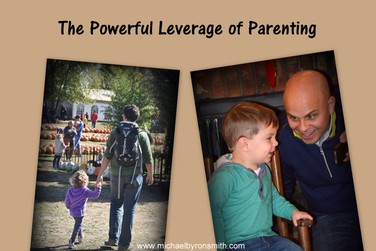
—Robert Fulghum
Everyone should be themselves, but what does that mean? Is it possible, is it wise? In a way, we are different people at different times and in different circumstances. That is an important consideration. Certainly this comes into play as a parent.
We will influence every person with whom we ever come into contact. It might be as significant as creating a new human being, or as ephemeral as a smile to or from a stranger. It’s true! Every interaction has an influence. For example, words of praise and encouragement from a stranger to me as a small child 58 years ago still are with me. A school counselor who didn’t know me, but knew of me, changed my life significantly! Overhearing a fellow student pilot talking about me caused me to reflect upon the kind of person I was.
Your attitude, your beliefs, your kindness or cruelty, will mold some, and/or leave a mark on others, especially within your family. What isn’t so apparent is when these influences take place. Sometimes your words or actions seem to not even be noticed, and often they are not. There are no announcements screaming ‘you have helped me’ or ‘you have changed my life’! Assume nothing.
Why is this important? Because at no time are we more likely to swayed, manipulated, persuaded, shaped or inspired than as a child. Our capacity to be influenced becomes less effective as we age, but our power to influence can happen at any age. A ninety-two-year-old person has power in words and action. So does a two-year-old toddler. Yet the two-year-old is much more malleable, much more capable of being influenced than someone who has matured.
It’s obvious to say that parents and those people that are exposed to your children are the shapers of their lives, but not always in obvious or majors ways. I mention in my book, "The Power of Dadhood";
“One thing you need not worry about—it will happen with certainty—is this: your children will learn from you. They learn in two ways: First, they learn by what you point out to them that they may never see on their own. I call this parenting. Second, they observe and mimic you. I call this as parental osmosis.
In parental osmosis, your influence can take two opposite paths. One is as a good example in which your children want to emulate your kindness or wisdom. The other is as a terrible example in which they will try their best not to be the uncaring, slothful, or cruel parent they have seen exemplified by you. The worst outcome of all is when your children assume that your bad behavior is the correct behavior, and so that is what they emulate. To be the best influence, you must be a person of clear character and integrity, not only in their eyes, but in truth, in life, and in all things.
Take stock of your values and actions. If you are rude to your elders, your children will most likely be rude to theirs. If you smile often, they are more likely to smile than not. If you smoke, they will see that as an endorsement for smoking, even if you tell them not to. If you always do what you say you will do, they will learn to do the same.”
And what about those other people who influence your kids? Friends, teachers, and acquaintances. They also have influences in both positive and negative ways. It is important for a parent to pay attention to who has access to your children. When fathers are not around as male influencers, that need could be filled by someone who is immature, misguided, or predatory. This can lead to drug use, crime, teen pregnancy and so much more.
Yes, be yourself but be careful who you are, especially around children. Because who you are at work, or at play, or in a bar, etc. may not be the person you want to impress upon a young child. We are all influencers in some degree or another.
My article next week will follow up on this theme. Tentative title, "Missed Opportunities Mean Unrealized Potential for Children".





